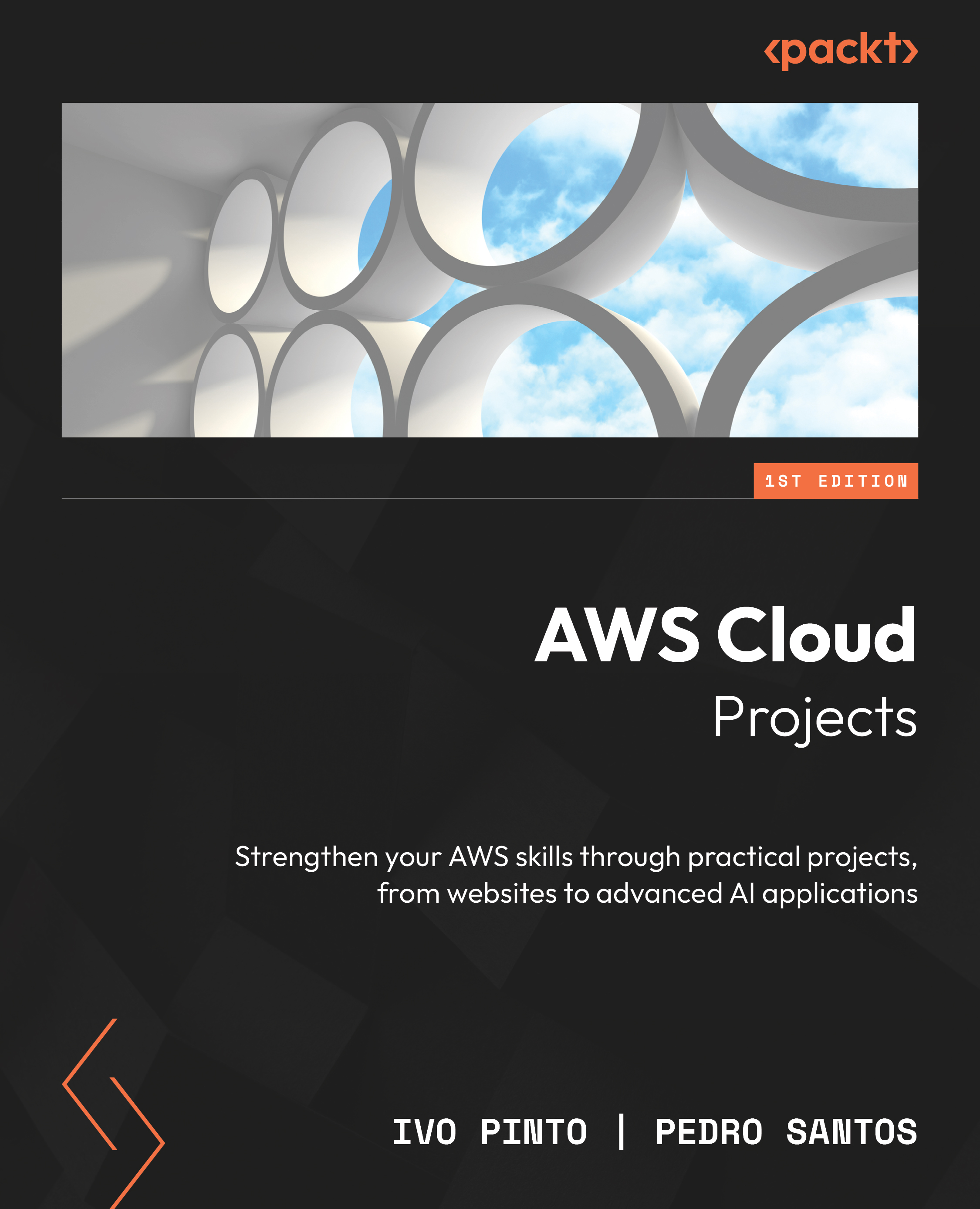What this book covers
Chapter 1, Deploying and Interacting with AWS Services, explains how using the AWS console is a good starting point, but there are more advanced options that will help you manage your resources in a scalable way. In this chapter, you will learn the different ways to create and manage AWS resources. You will also learn about the AWS CLI and SDKs and get familiar with Infrastructure as Code.
Chapter 2, Creating a Personal Website, as the first practical chapter, introduces what you are going to build: a personal website to use as your CV. This is followed by an architectural diagram of the solution, accompanied by step-by-step instructions on how to build it on your own AWS account. This chapter ends with suggestions to improve the application you have built.
Chapter 3, Building a Recipe-Sharing Application, covers how to build a recipe-sharing application. You will learn about how dynamic applications are built, and how to interact with databases. It’s structured in the same way as the previous chapter, starting with a description of the new functionality followed by the technical architecture, and step-by-step instructions on how to build and test it.
Chapter 4, Building a Serverless Recipe-Sharing Application, rebuilds the recipe-sharing application, but with a twist. Much like in the previous chapter, this is a dynamic web application. However, this time, you are going to only use serverless services. Because of the confidentiality nature of the project, you are also going to add an authentication mechanism.
Chapter 5, Implementing an Image Analyzer to Detect Photo Friendliness, covers how, before choosing your CV photo, you ask for feedback from your peers to see how friendly it looks, so what if you could do it automatically? Let’s say that every time you upload a new photo, your application automatically rates it in terms of friendliness and suggests whether it is a good fit for a professional CV. In this chapter, you will build this functionality using AWS-native AI services.
Chapter 6, Architecting a Content Translation Pipeline, covers accessibility. Have you accessed a website that automatically translated itself into your language? Accessibility is important to reach wider audiences. In this chapter, you will learn how to automatically have your content translated to multiple languages using a CI/CD pipeline and then dynamically served using your users’ browser preferences.
Chapter 7, Implementing a Chatbot Using Machine Learning, explores the use of chatbots. Everyone has heard of ChatGPT. In this chapter, you will build a virtual assistant that answers queries related to web development. This virtual assistant is powered by the newest machine learning advancements: large language models.
Chapter 8, Building a Business Intelligence Application, explains how, more than building web applications, you can also build business intelligence solutions to analyze data and identify trends. In this chapter, you will use AWS-native services to analyze clickstream data. Clickstream data is collected when users access websites and applications. Understanding it allows application owners to better tailor their content to their audience. At the end of this chapter, you will be ready to query, transform, and visualize several formats with ease.
Chapter 9, Exploring Future Work, explains how, in AWS, there are more than 200 services that you can use to power your applications. Unlike the previous chapters, which had step-by-step instructions to build applications, this chapter has an overview of what AWS has to offer and strategies to accelerate and support your project ideas. This chapter is not a practical one, it is inspirational; use it to brainstorm your next big project.































































